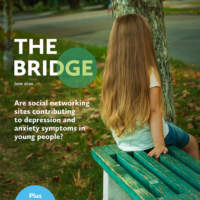suicidal ideation
-

Self-harm and Suicide Risk in Young People: A Call for Personalised Assessment
Self-harm affects roughly one in six adolescents and is a potent predictor of suicide. Yet the best-known risk-prediction tools correctly identify only a small minority of future suicides. Instead of relying on scores, clinicians should carry out compassionate, personalised assessments, followed by rapid follow-up and collaborative safety plans.
Read more -

Common Elements in Interventions for Youth Suicide and Self-Harm: Findings from a Practitioner Review
A practitioner review of 18 randomised controlled trials identifies the therapeutic elements most commonly found in interventions that reduce suicide attempts and self-harm among adolescents. The findings highlight key strategies that can inform and guide clinical practice.
Read more -

Internet-delivered therapist-assisted cognitive therapy for adolescent social anxiety disorder (OSCA): a randomised controlled trial addressing preliminary efficacy and mechanisms of action
Open Access from the JCPP – “Forty-three youth (14–18 years) with SAD recruited through schools were randomly allocated to therapist-assisted Internet-delivered CT-SAD or waitlist for 14 week”. Eleanor Leigh (pic) and David M. Clark
Read more -

Do cybervictimization and face-to-face victimization affect suicide ideation risk in the same way?
Data from a new study published in the JCPP suggests that cybervictimization is an important risk factor for concurrent, serious suicidal ideation/attempt throughout adolescence.
Read more -

June 2020 – The Bridge
Includes ‘Are social networking sites contributing to depression and anxiety symptoms in young people?’
Read more -

International Day of Families
Research on the importance of attachment and positive relationships, families ability to be a mental health intervention and some timely tips for practitioners to help parents manage challenging behaviour with homeschooling and lockdown.
Read more -

DBT-A reduces self-harming behaviours by improving feelings of hopelessness
Professor Lars Mehlum and colleagues have completed a prospective 3-year follow-up study, which showed that DBT-A has enduring effects in terms of reducing self-harm frequency in adolescents compared to EUC.
Read more -

Low parental belongingness increases suicidal ideation risk
The Saving and Empowering Young Lives in Europe (SEYLE) randomized controlled trial (RCT) was originally established to evaluate the efficacy of three school-based interventions on preventing suicide in 11,000 adolescents.
Read more -

Social cohesion and integration in schools reduces suicidal behaviour rate
Emerging data suggest that strengthening positive social bonds and improving social integration might reduce suicidal behaviours in youth to date; little research has studied the effect of social integration, on suicide behaviours, with reference to a young person’s social network structure — namely, an individual’s position within their network and the patterns of relationships among members of the network.
Read more -

Family-focused CBT is not superior to enhanced treatment-as-usual in reducing suicide attempts
In 2011, Esposito-Smythers et al. reported that integrated outpatient cognitive-behavioural therapy (I-CBT) significantly reduced substance use, suicidal behaviours, and the rate of health service use compared with enhanced treatment-as-usual (E-TAU) in adolescents with co-occurring alcohol or drug use disorder and suicidality.
Read more